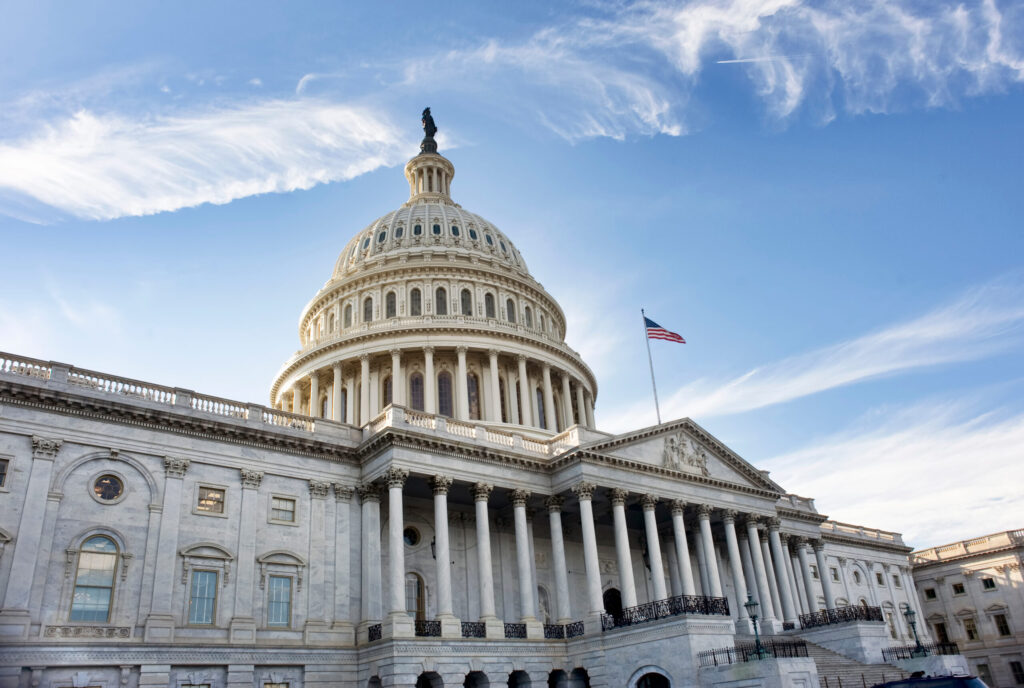Urgent Call to Action: Let Experienced Pilots Fly!
Join Us As We Urge the Senate to Fund the Federal Aviation Administration
The safety of air travel is a concern that affects every American who takes to the skies. We are continuing to shed light on a critical issue that impacts the very core of aviation safety – the forced retirement of experienced airline pilots because they turn 65.
In the pursuit of safer skies, Congress is reconsidering an outdated law that mandates the retirement of the most experienced airline pilots at 65, a limit that lacks basis in science or the reality that people are aging well and maintaining our health, overall, longer than ever before. As advocates for the flying public, we believe the United States Senate Commerce Committee needs to act NOW and raise the pilot retirement age to at least 67 as part of the FAA Reauthorization Bill already passed by the House.
Experienced pilots are needed more than ever due to the rise in near misses and other recent near-catastrophic events, paired with the record numbers of people traveling by air.
The repercussions of this arbitrary age limit extend beyond pilots; it affects us all. The current shortage of experienced pilots means fewer crews to fly planes. Carriers in the U.S. are forced to recruit pilots from other countries. The pilot shortage leads to increased cancellations, loss of routes at regional airports, limited flight options, and higher ticket prices. This puts an unnecessary burden on the aviation industry and the lives of people who rely on air travel.
According to a 2009 report the Government Accountability Office estimated the value of the “economic engine” of air travel (hotels, restaurants, ground transportation, airport related businesses) at $334 million into local economies nationwide.
Congress needs to ignore the greed and untruths of special interest groups and focus on the positive impact to the safety of air travel and the economy when we can rely on the skill and contributions of our most experience airline pilots.
It is outrageous for pilot unions, whose primary responsibility is to safeguard their members, to actively oppose efforts to extend retirement for some of their members. This opposition stems from a focus on immediate financial gains through dues from younger pilots, disregarding the immense value that experienced pilots bring to the flight deck, airline training programs, and the benefit of highly experienced pilots mentoring our less experienced aviators.
Experience and safety are being dismissed in favor of dues income. This puts labor unions’ leadership squarely at odds with many of the members they represent as they advocate against the right of capable Americans to work.
Once again, Congress needs to act now. They need to pass a long-term reauthorization bill for the Federal Aviation Administration (FAA) and stop allowing the unelected, unaccountable unions to dictate public policy for their own economic self-interest. By the way, the largest pilot union represents pilots over 65 in other countries but is not advocating that they lose their jobs. Why the hypocrisy? Why target just the pilots flying for U.S. airlines?
In 2007, Congress voted unanimously to raise the airlines’ pilot retirement age from 60 to 65. The largest pilots’ union praised the passage of the law increasing the retirement age and had abandoned their previous false claims about the “chaos” to air travel that this rule change would allegedly cause. Simply put: the traveling public benefits from raising the pilot retirement age. It was true 16 years ago and it is true today. The public deserves a bipartisan effort to pass this legislation now.
In 2006, the Equal Employment Opportunity Commission and FAA were discussing the elimination of age restrictions for pilots, altogether, removing the unions from the issue. As it should be. Further proof that this law is arbitrary and antiquated is the fact that the laws governing other types of aviation (pilots for charter jets, corporate planes, cargo planes) have either NO upper age limit or 70 years of age.
Older pilots do not suffer more illness or incapacitation or become less safe in their roles because of a birthday. Scientific evidence supports the fact that experience enhances safety. There is no increase in adverse incidents or compromised skills for pilots flying beyond the age of 65, as demonstrated in other countries. There is plenty of data – we don’t need the “stall tactic” of calling for more studies. In the more than 10 countries where pilots can fly for airlines after age 65 there exists plenty of data – all proving that you are not suddenly compromised because you have a birthday.
About 10% of all U. S. flights are international and there are processes in place to allow pilots to fly internationally after age 65. In fact, at least one international policy group advocates for no upper age limit for airline pilots instead allowing the rigorous testing of pilots already in place to determine who should fly. Airline pilots are the most tested professionals in our country. Americans feel safer flying with seasoned, experienced pilots commanding their aircraft. And the law requires at least two pilots on the flight deck for every flight.
Our mission is clear: to ensure the flying public continues to benefit from the safest era in modern aviation history. We ask the public to join this cause.
Reach out to your U.S. senators today and urge them to support the FAA Reauthorization Bill that includes raising the pilot retirement age. Ask them to allow those recently forced out by this outdated law, who are able and want to work, to return to the air using a simple process already in place. https://democracy.io
Let senators know that experience matters, and our best aviation mentors deserve the opportunity to continue serving.
Together, we can effect a safer, more secure future in air travel.
Sincerely,
Captain Barry Kendrick
President, Let Experienced Pilots Fly, Inc.
